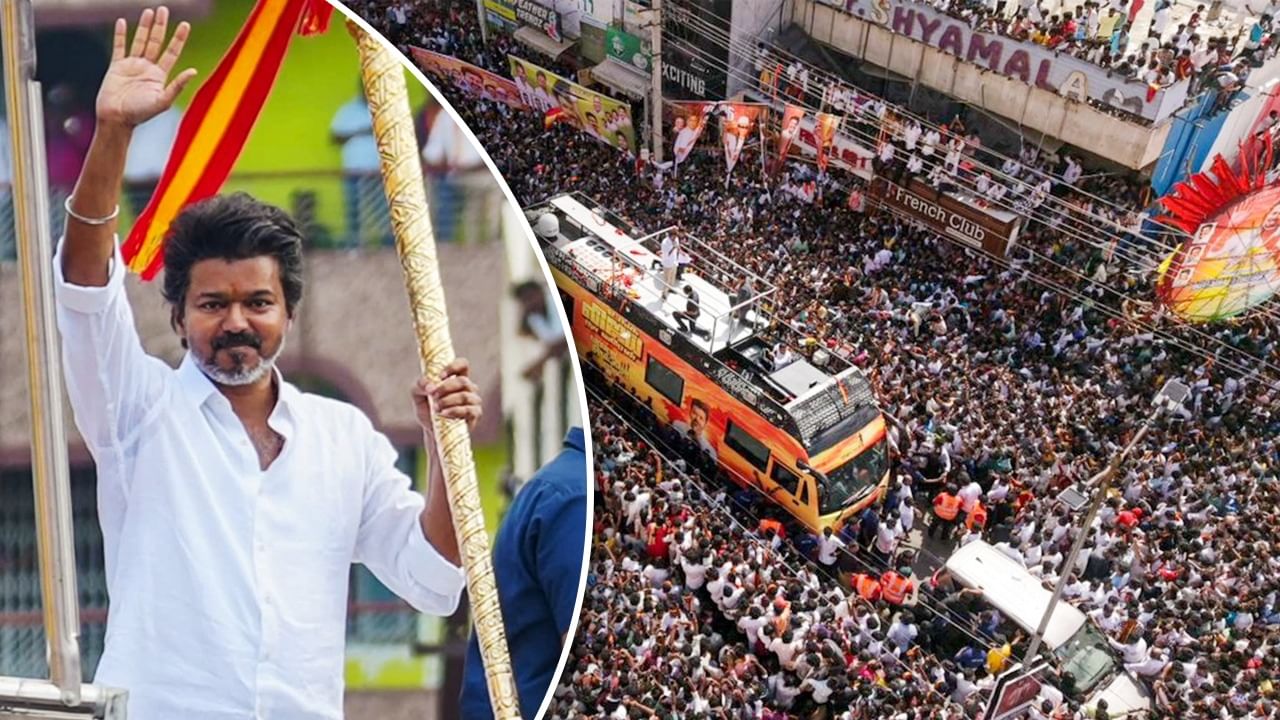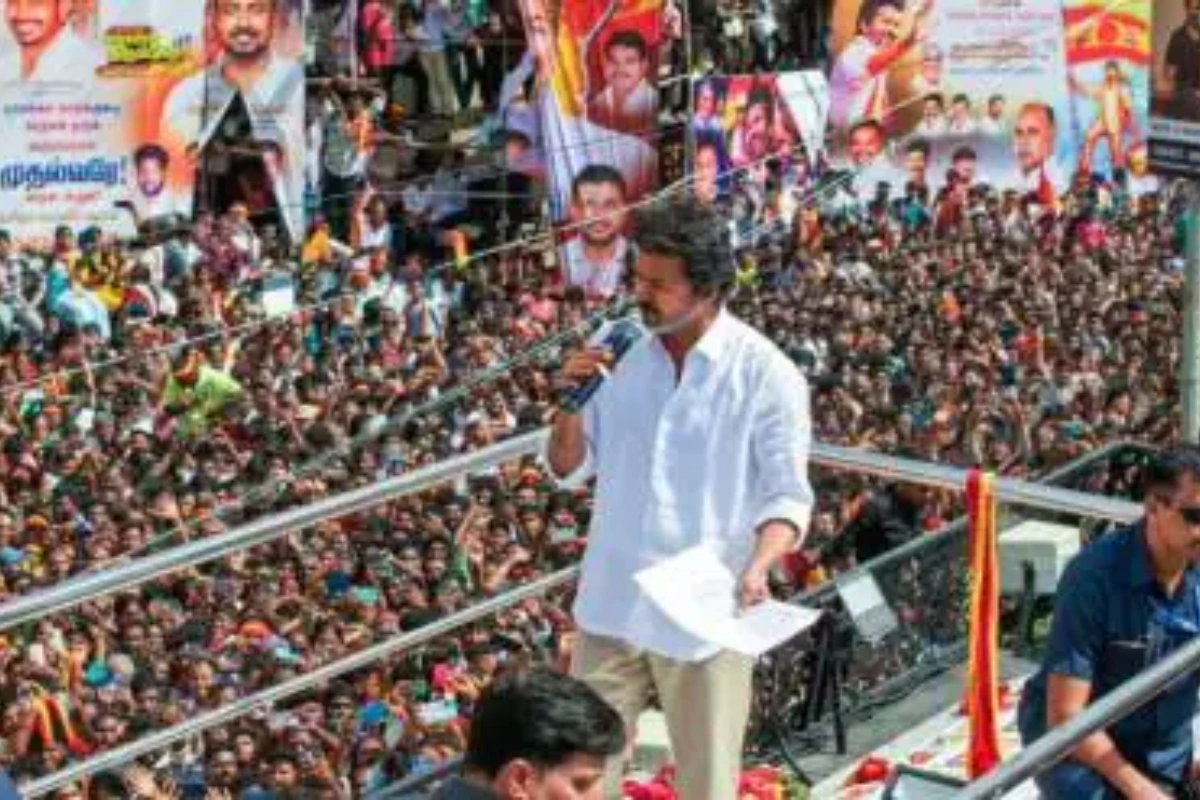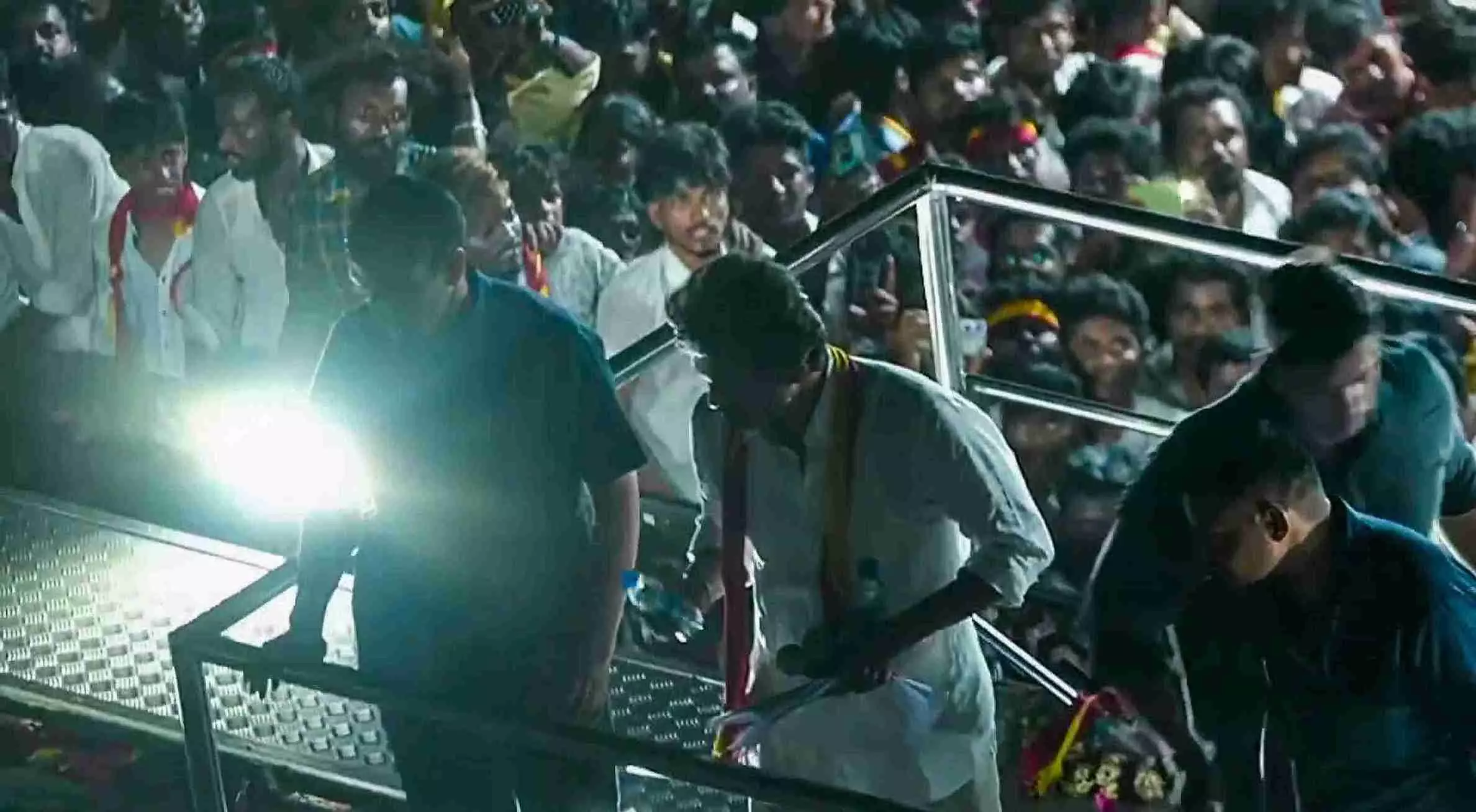Tamil Nadu politics, for the uninitiated, often looks less like democracy and more like theatre—complete with superstars, dramatic dialogues, and the occasional tragedy. As someone who has both followed this state’s political circus and claims Tamilian roots (my forefathers migrated long ago, but the DNA of drama runs deep), I can assure you that actor-worship here is not a recent phenomenon. It’s practically a cultural trait.
From MGR’s days of fanatical devotion—when men actually set themselves on fire or slit their wrists to prove loyalty—to the equally cult-like following of Karunanidhi and Jayalalithaa, Tamil Nadu has never shied away from putting personality above policy. In that context, should anyone really be surprised by the unprecedented crowds now thronging the rallies of Vijay, the newest star-turned-politician under the TVK banner?
Of course, mass hysteria has its costs. The recent Karur tragedy, where 39 of his supporters lost their lives in a stampede, was not just unfortunate—it was predictable. A tragedy waiting to happen. The responsibility lies not just with the actor’s party but also with the ruling DMK government, which failed to manage the crowds. Yet, what do our politicians excel at? Passing the buck. Hence, the convenient scapegoating of a local TVK secretary, as if a district-level organizer orchestrated chaos of this scale.

But peel back the rhetoric, and what’s happening is obvious: Vijay is proving he is more popular than the state’s sitting Chief Minister, M.K. Stalin. More than that, he’s eclipsing fellow actor-turned-politician Kamal Haasan. Remember him? The self-proclaimed intellectual of Tamil cinema who launched a party, failed spectacularly at the hustings, and then found the nearest backdoor into politics via the DMK’s Rajya Sabha quota. Kamal could gather a crowd, sure—but nowhere near Vijay’s numbers. The message is blunt: in the post-Jayalalithaa era, Vijay may well be the most charismatic political actor since MGR.

That, however, brings us to the billion-rupee question: do crowds translate into votes? Political history suggests caution. For every MGR, there’s a Chiranjeevi—remember his “Praja Rajyam Party” experiment in undivided Andhra Pradesh? After a lot of noise and dancing in the streets, the party fizzled out, forcing him to merge with the Congress. His brother Pawan Kalyan isn’t faring much better today. Star power draws applause, yes. Electoral math? That’s a different ball game.
Still, Vijay’s rise has clearly rattled Tamil Nadu’s entrenched players. With assembly elections less than a year away, both DMK and AIADMK are watching nervously as his crowds swell. Pollsters are hedging their bets. Some say the DMK will scrape through; others insist the AIADMK-BJP alliance has the momentum to edge ahead. Almost everyone agrees on one thing: Vijay’s TVK could emerge as the spoiler that denies either Dravidian giant a comfortable majority.

Could Tamil Nadu actually see a hung assembly? History says no. The state’s voters, despite their reputation for political drama, have largely swung between the two Dravidian parties since 1967. They like their politics bipolar, and cult loyalty runs deep. But then again, if there’s one place in India where a cinema hero can rewrite political history, it’s here. After all, MGR did it. Jayalalithaa did it. Vijay, at least for now, looks like he might just be auditioning for the same role.
In the end, the real test won’t be the size of Vijay’s rallies, but the number of seats his party can win. If he can move from reel hero to real kingmaker, Tamil Nadu’s political screenplay could get its biggest twist in decades. Until then, the Dravidian duopoly will continue their theatrics, blame games, and nervous glances at the box-office success of their new competitor.
Because in Tamil Nadu, politics has always been less about ideology and more about box office collections. The only difference? This time, the tickets come in the form of votes.




